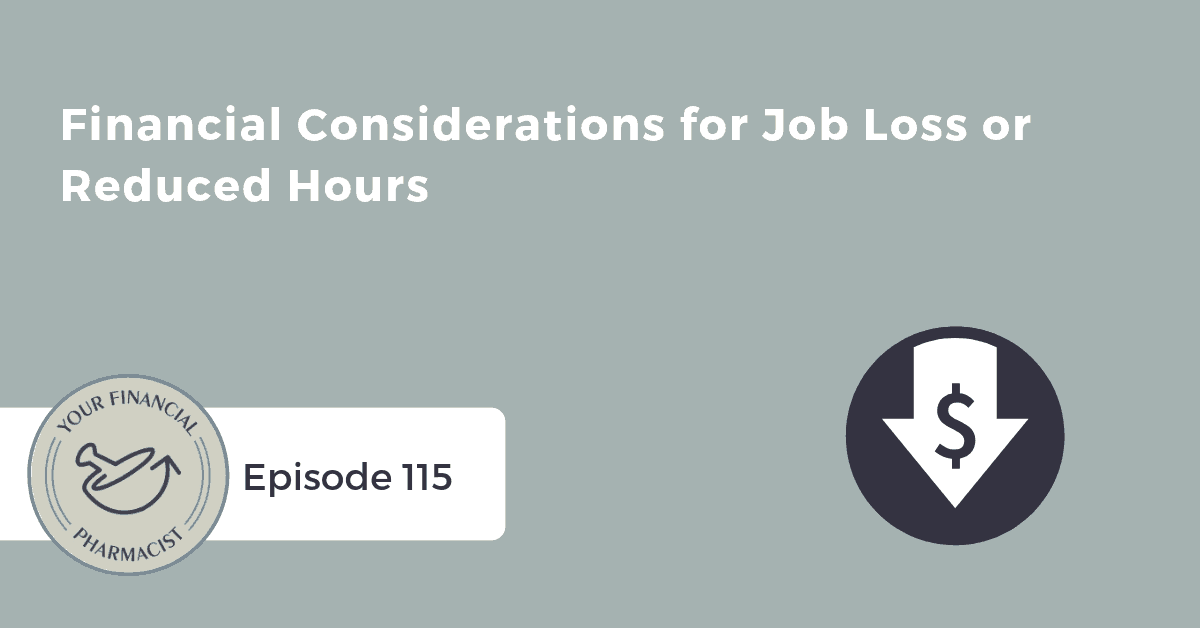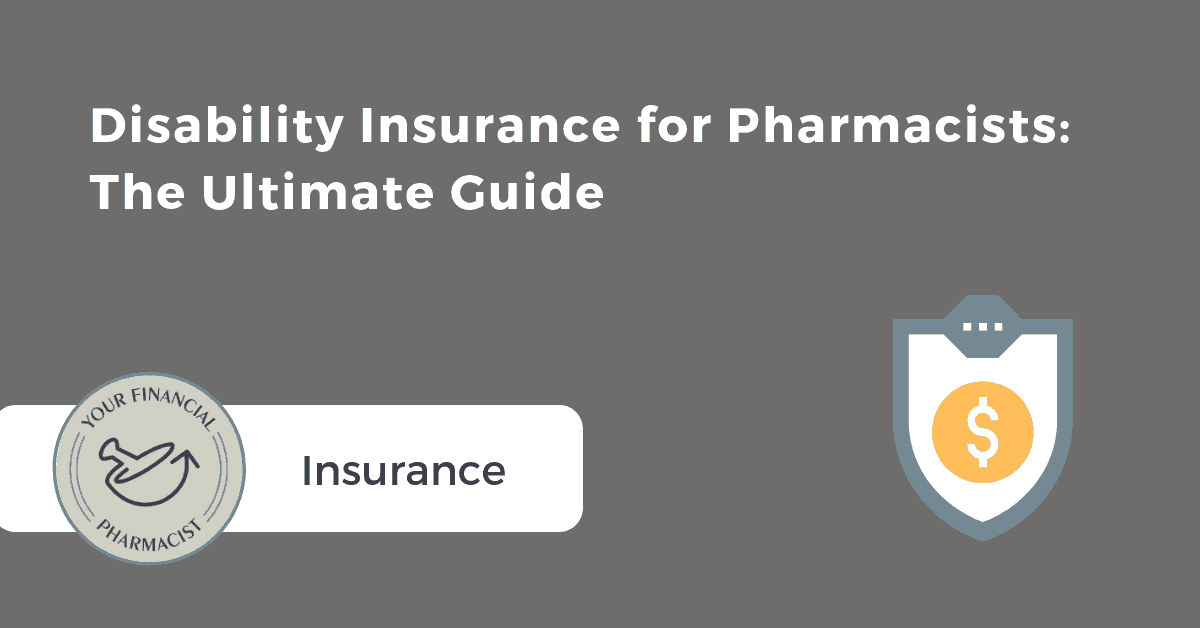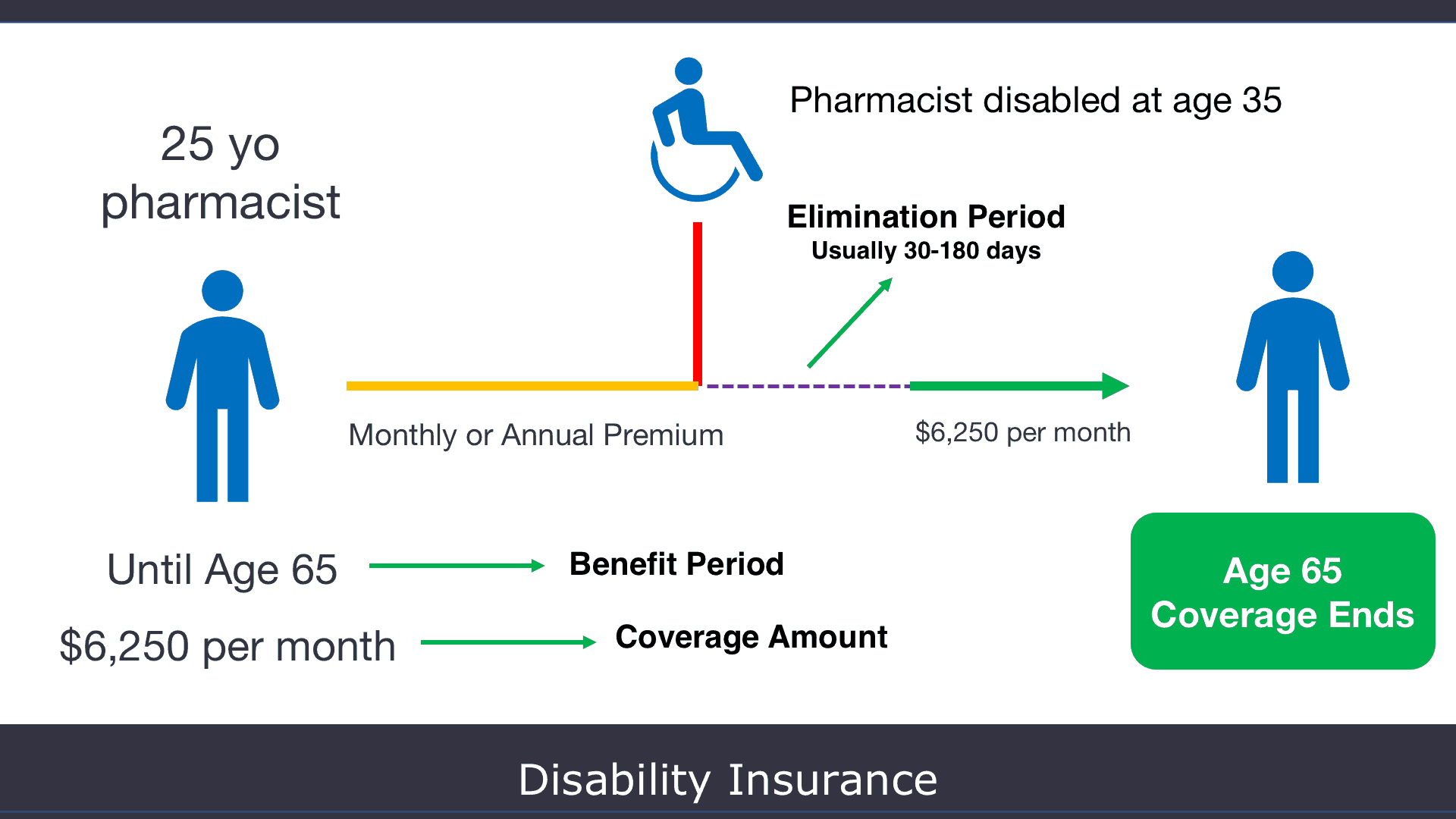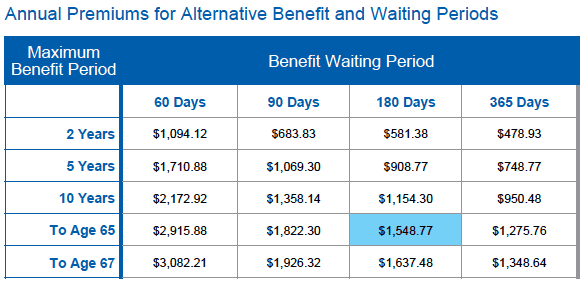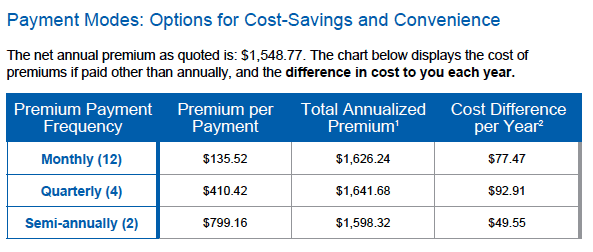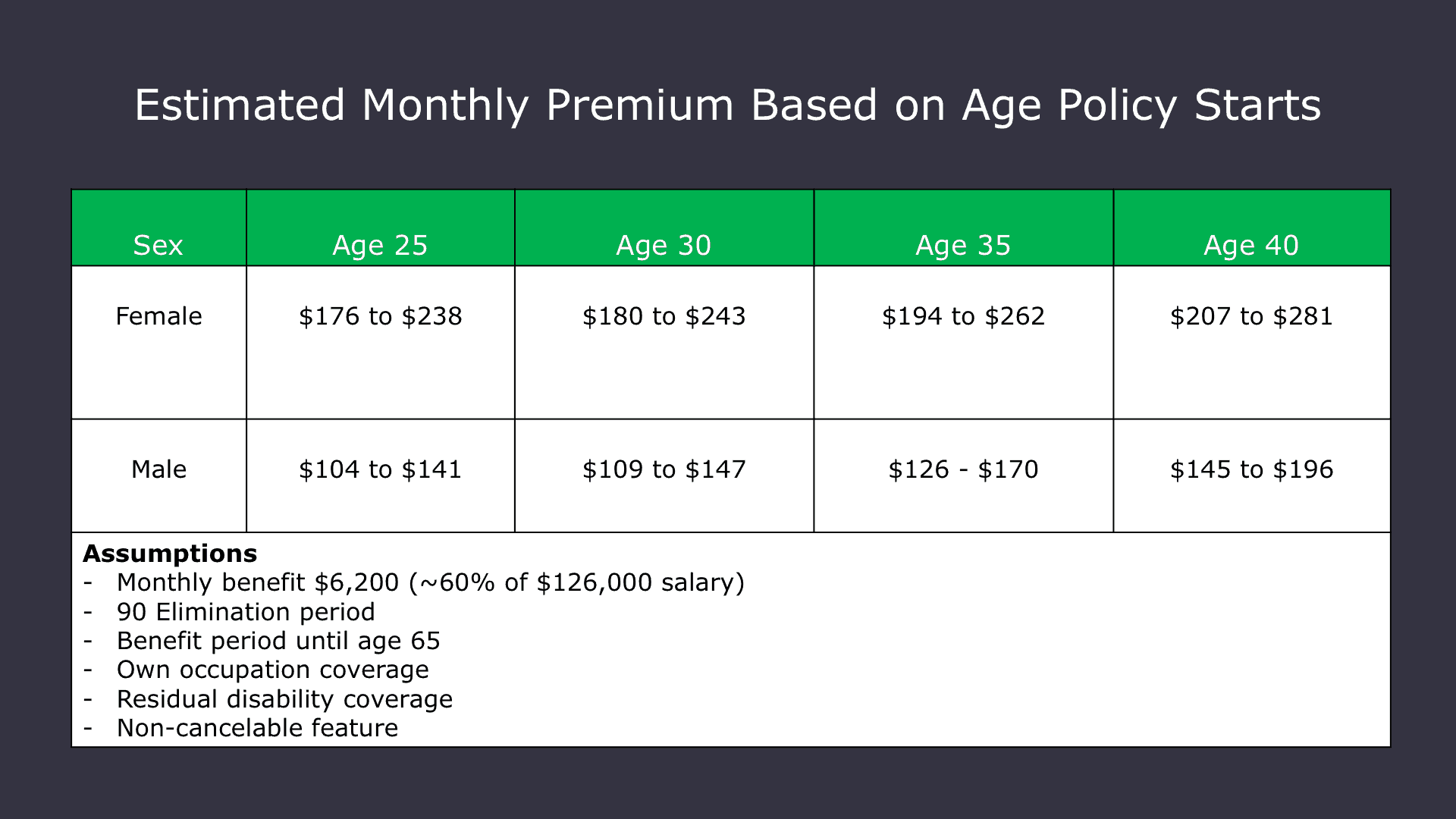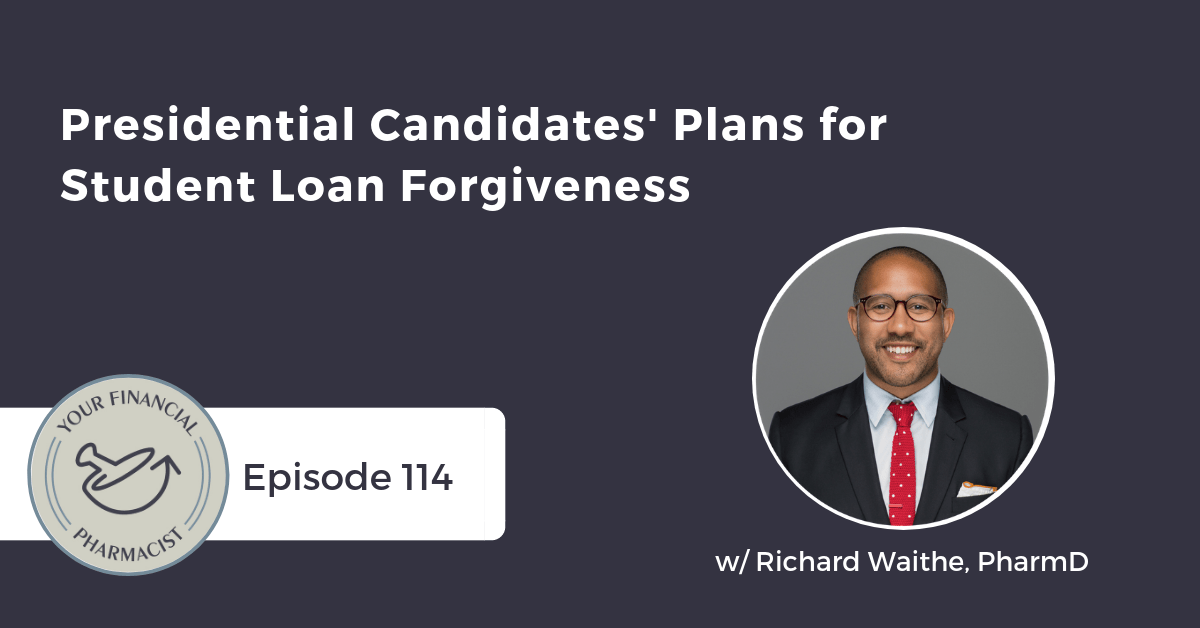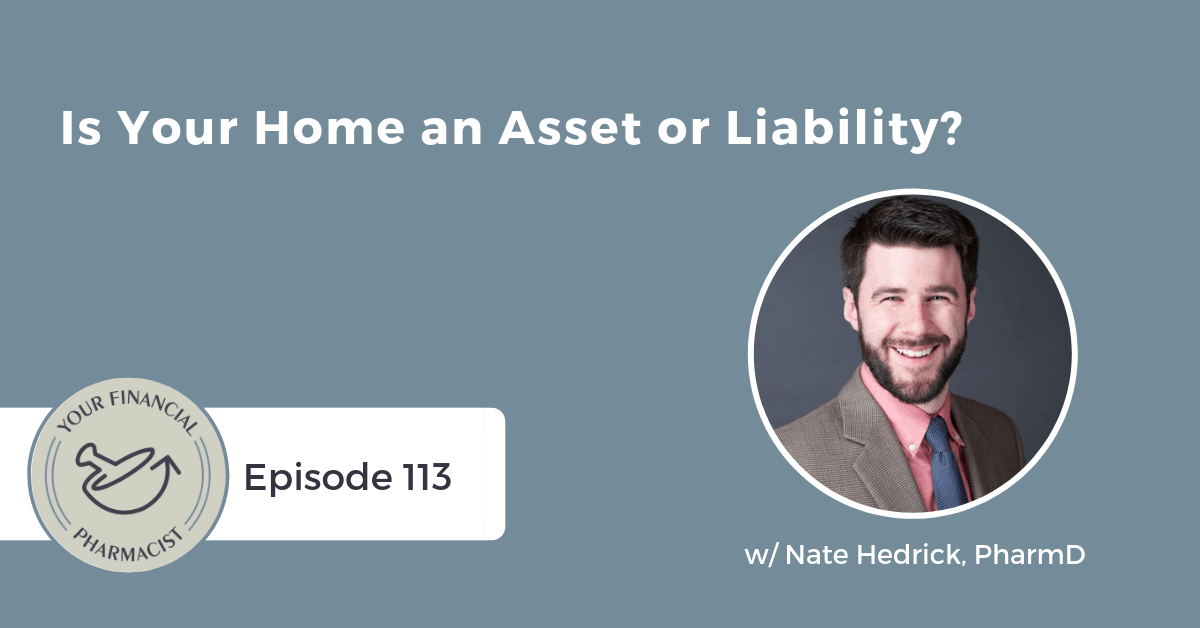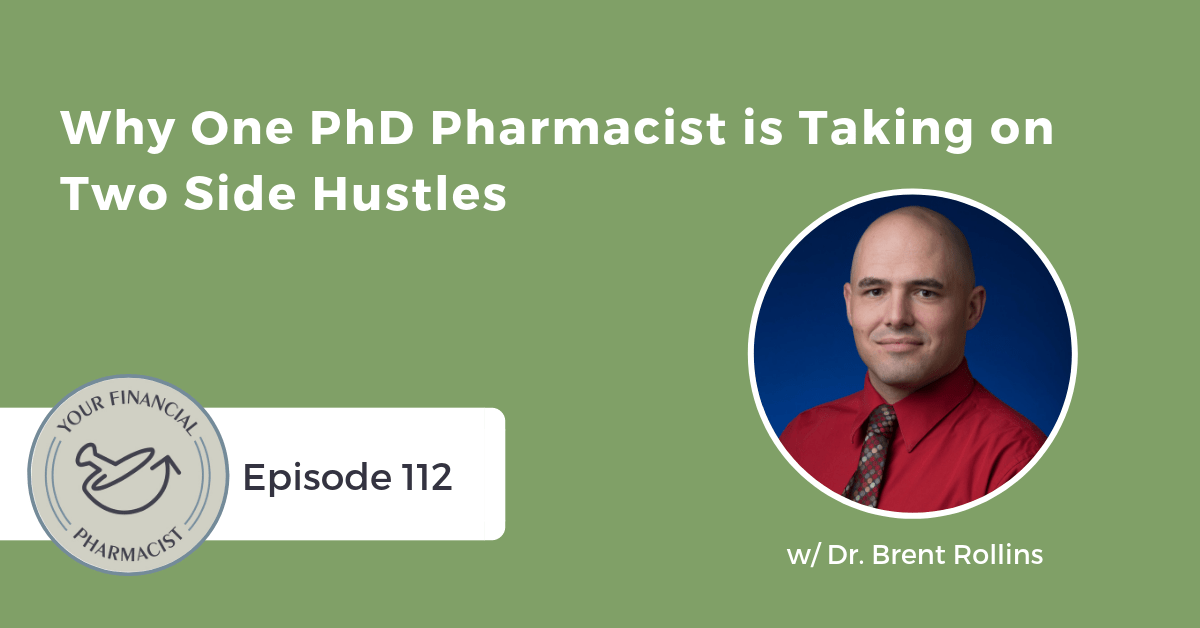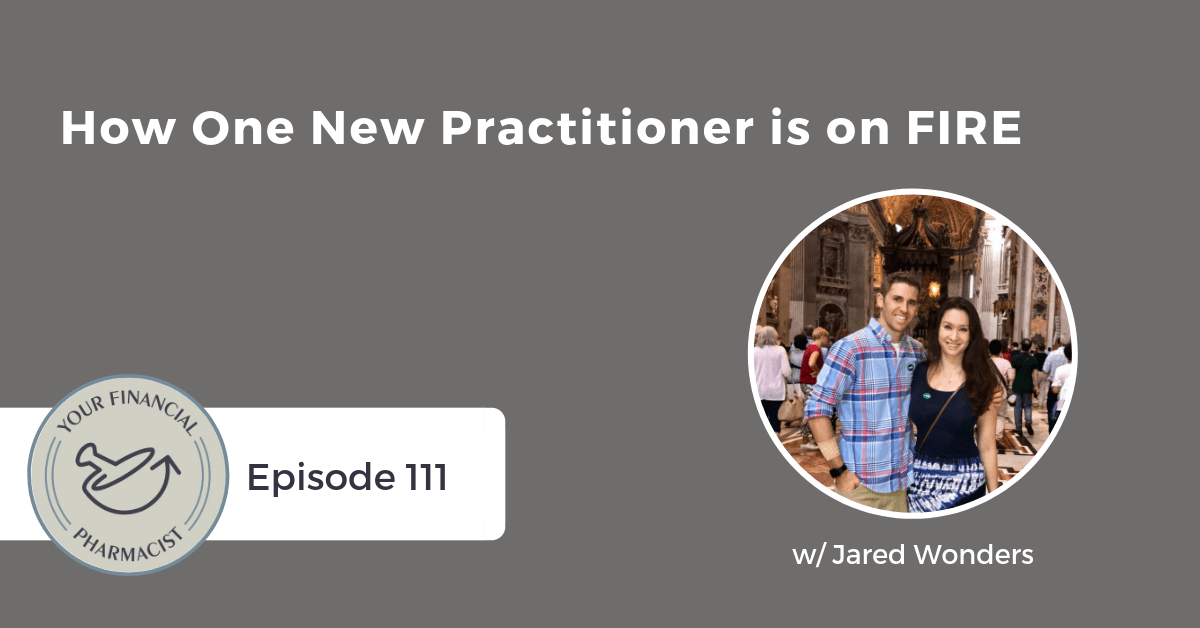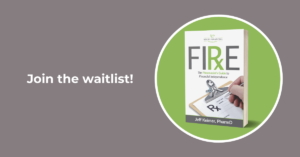Financial Considerations for Job Loss or Reduced Hours
On this week’s episode, Tim Ulbrich and Tim Baker talk through financial considerations for those that find themselves in a financial hardship due to job loss, hours being cut or wages being reduced. With the recent news of some big box pharmacies planning to close stores and cut their workforce and many other employers cutting back hours for full-time pharmacy employees, this conversation of how to navigate a current hardship or be ready to weather a future storm is more important than ever.
Summary
Tim and Tim talk through several financial considerations for job loss or reduced hours. Some pharmacists are facing potential job loss, cut hours or a reduction in wages. Companies like Walgreens, Walmart, Kroger and Harris Teether are either closing their pharmacy doors or reducing hours significantly, leaving many pharmacists to question how secure their jobs are. If you’re in this position, what should you do or be thinking about? Tim and Tim discuss emergency funds, what to do with your student loans during a financial hardship, health insurance, what to focus on with retirement savings, the value and importance of a side hustle and networking.
Tim Baker shares that while many of this is out of a pharmacist’s control, you can start by looking at your foundation. How much credit card debt do you have? Is your emergency fund where it needs to be? By reducing credit card debt and having an emergency fund to cover 3-6 months of non discretionary expenses like rent, utilities, mortgage and loans, you’re setting yourself to be protected in case you face financial hardships like many are in the field today.
Next they discuss federal loans and when to use forbearance, deferment, or choosing an income based repayment plan. Tim Baker says that first deferment should be explored and then forbearance if needed as your interest will capitalize greatly with the latter.
In regards to health insurance when losing your job or having a change in your benefits, there are several options to consider including COBRA, short-term health insurance, exploring the federal marketplace, healthcare sharing, or HSAs.
When looking at retirement savings, Tim Baker says that typically, if you are in your 30s, there is plenty of time to right a ship that’s off course but that it’s also important to keep the fees associated with your investments low. They also talk about the importance of diversifying not only your investments but also your income by taking on a side hustle or entrepreneurial venture. This allows you to make money and also put the extra money into different savings goals depending on your passions. Tim and Tim also talk through how networking can help in times like these and the membership offer APhA has to those facing financial hardships.
Mentioned on the Show
- Refinance Your Student Loans
- RxRadio
- RxRadio: Pharmacy’s Podcast – Episode 71: Cancel Student Loan Debt???
- YFP 114: Presidential Candidates’ Plans for Student Loan Forgiveness w/ Richard Waithe
- Thoughts on the Walmart Layoffs by Richard Waithe
- YFP 026: Baby Stepping Your Financial Plan – The 2 Things to Focus on First
- Ally
- Cobra Coverage
- Marketplace Insurance
- Medi-Share
- Liberty Healthshare
- YFP Planning
- YFP 112: Why One PhD Pharmacist is Taking on Two Side Hustles w/ Dr. Brent Rollins
- Tony Guerra
- David Burkus
- Friend of a Friend…: Understanding the Hidden Networks That Can Transform Your Life and Your Career by David Burkus
- APhA
- APhA Membership Offer
- Email APhA: [email protected]
- Enter YFP’s Entrepreneurial Toolkit Giveaway
Episode Transcript
Tim Ulbrich: Hey, what’s up, everybody? Welcome to this week’s episode of the Your Financial Pharmacist podcast. And I have with me back on the mic the one and only Tim Baker, fee-only Certified Financial Planner for Your Financial Pharmacist. Tim, it’s been awhile. How are you doing?
Tim Baker: I’m doing well, Tim. How are you doing?
Tim Ulbrich: Good. So before we jump in, it’s been awhile since you’ve been on the show. And big news for the Baker family with the addition of a baby. Give us the good news and tell us how everyone’s doing.
Tim Baker: Yeah, everyone’s doing well. And August 2, we welcomed Liam Baker to the fold. So we have Olivia who’s 4, turns 5 in October. And now we have Liam. And everyone’s doing well. I’ve got to give major props to my wife, Shea. She experienced 40 hours of labor, and we finally got to meet him on the 2nd. So it was a lot of stress I think leading up to it, but we’re happy and healthy baby, healthy mom, and now we’re kind of going through the storm of — I shouldn’t say storm, that’s probably a bad way to say it — but in-laws here and family here and trying to get into a routine and everything like that. So all good things, though, and thanks for asking.
Tim Ulbrich: Yeah. When people ask about like the birth of a child, I always feel like it’s easy to think of it as like the most chaotic, most joyous moments of your life, all wrapped into one.
Tim Baker: Yeah. And I’ll tell you what — and this came I think straight from you guys, you and Jess, like I don’t think I could have done it without our doulas. So shoutout to our doulas, our doulas were unbelievable and I think if I looked back on that experience, if they weren’t there to support Shea and myself, I think we would have been lost. And it’s just one of those things where you don’t know what you don’t know. It’s almost like a financial planner, you know, these individuals are just lovely people who are there to help coach you and advocate for you and in a world sometimes in labor and delivery where it’s almost like it’s very medicalized, if that makes sense, and sometimes, the things we manage to the lowest common denominator — obviously we want a healthy baby — but do we have to do this procedure? Do we have to do this? Or it gives us some time to think about it, and I think that really when we compare Shea’s birthing experience for Olivia versus Liam, they’re so different. I think the doulas are a big part of that. So not to get on a tangent about that, but that was a great process or great to have them on the team.
Tim Ulbrich: Yeah, and the value of a coach is real, right? Especially in this situation and this exciting time in life but also very stressful one. And a shoutout to YFP team member Caitlyn, who helps us with the podcast and lots of things with YFP who is also a doula, helping people up in the northeast Ohio area. So let’s transition and talk about this week financial considerations for those that are facing potentially a job loss, hours that are being cut, a reduction in wage, and this topic I think is really more important than ever in the profession if you think about the recent announcement by Walgreens and its plan to close 200 stores in the U.S. Obviously, we have others; this isn’t an isolated story. WalMart had made similar announcements. We have many others that have cut hours, notably would Kroeger and Harris Teeter. It seems like 32 is really becoming more of the norm when it comes to a community pharmacy practice, and we’re seeing certainly wages that are being reduced as well. And so I think this conversation about what should one be thinking about if they find themselves in this situation, whether that be a job loss, whether that be hours cut, or whether that be a reduction in wage. And oh, of course we’re not seeing a slowing down of the student indebtedness with the most recent data from the class of 2019 showing now an average just over $172,000. So Tim, before we jump into the strategies and what one should be thinking, what do you make of all this and what we’re seeing out there in the profession?
Tim Baker: It’s a great question, Tim. I mean, I am not — I think you and I have stated multiple times and just in our view on things is that I think we are very much the optimist. But I’ve seen it with clients that have come through my door where they’ll — it’s like OK, we’re talking about their financial plan and their net worth and income, and I’ll say, “OK, what’s your annual income?” And I work with two full-time community pharmacists, and they’re making in the $70s each. And you know, at the end of the day, I think this is all cyclical. Like I think right now, we’re in a position or the profession is in a place where it’s kind of right-sizing, and I think we’re going to see that from a job perspective, probably even an education perspective. So I think that this is something that we definitely have to I think talk about and talk through. And I think that’s where YFP I think can play a role is kind of talk through these issues and what we can do financially, but I think also what we can do as a profession — and this is me as an outsider speaking about pharmacy. But it concerns me, I think. You know, when you’re looking at a full-time job of $70,000-80,000, and you still are carrying $170,000, $270,000, $300,000+ in loans, which I see, that’s concerning, you know. And the political climate out there is such that our leaders, at least what you see on the Democratic side, and we’ve heard it from President Trump, I think there’s attention that is at least being paid to this crisis, or whatever you want to talk about. But at the end of the day, there’s a lot of things that we can’t control. And there are things that we can control, and I think what we want to do is kind of shine a light on the things that we ultimately can control and at least get something to think about and to chew on, and I think that’s really our purpose in this episode.
Tim Ulbrich: Yeah, absolutely. And we’re going to jump into those things that we can really focus on and one can control. And before doing that, I want to give a shoutout to Richard Waithe from RxRadio. And him and I talked on our podcast last week and also on his show about the debt cancellation that’s being proposed by the 2020 candidates. But what I want to mention here — and we’ll link to our show notes — I think he did an awesome job, to your point about starting and sparking a conversation, he wrote a great post on Medium that we’ll link to that talks about some of the WalMart news and other cuts and what we should be thinking about as a profession and those within that profession. And I think I’m with you. We need to have a constructive conversation, and I feel like there really isn’t a great venue for that to happen right now. But I think that’s where we’re going to see really a lot of creativity and innovation in what we can be doing going forward. So let’s jump in. What can people control? And I think No. 1 what comes to mind, Tim, for me is really developing a sound financial base. So here, I’m really thinking prevention that if somebody were to find themselves in this position, if they have their financial house “in order” or those that aren’t yet in this position but maybe find themselves in that position in the future that they can really weather a storm like this or maybe even put themselves in a position to be more opportunistic if they’re dissatisfied with their work or they want to find something else to do. And we talk on this show all the time about having a sound financial base, having your financial house in order. So when you’re working with clients, what does this really entail in terms of putting yourself in a good position?
Tim Baker: Yeah, so I think the thing — and we talked about this in Episode 026, Baby Stepping Into a Financial Plan, which I look back at I think with this episode is it’s so long ago that I think we talked about it, it’s worth bringing up again. I think the two things that I look at when I first kind of do a once-over to someone’s financial situation is what does the consumer debt look like? So I’m not even really concerned about the student loans as much because there’s a lot of things that we can do to kind of mitigate the cash flow or the repayment of those loans. The thing that I look at is what essentially do the credit cards look like? And unfortunately, I feel like more and more pharmacists that come through my door, we have a good amount — I’m talking $10,000 or more — of credit card debt that we have to really reconcile. So you know, I think figuring that out is probably first and foremost. I think secondarily is it goes back to the emergency fund. So typically when we don’t have an emergency fund, that’s when we’re reaching for the credit card when something comes up. So the emergency fund really allows us to have peace of mind so we have cash money set aside in case something were to happen, it allows our investments to keep kind of working. So we don’t want to be pulling money out of our 401k or any of our investments that are really tailored to more of a long-term approach.
Tim Ulbrich: Right.
Tim Baker: And it allows us to avoid the credit card debt, so we’ve talked about at length of why this is important, and this is typically 3-6 months of non-discretionary monthly expenses, which are just a fancy way to say if you lose your job or your hours get cut back, these are the expenses you’re going to have regardless: your rent, your mortgage, utilities, your loan payments, that type of stuff. So I think at the end of the day, those two things, from a foundational standpoint, is the consumer debt in check? And you know, is the emergency fund in place or at least phase one? Sometimes I’ll say, “Hey, client, you need $30,000 in an emergency fund,” and they’re like, they might have $10,000 worth of debt, so we kind of take it in bite-sized chunks so we can achieve that goal.
Tim Ulbrich: That’s one of the things you boo, right? Go home, Tim Baker.
Tim Baker: Yeah, yeah. And the thing about it, and I kind of talk about this at length with regard to the investments, it’s really boring to pay off a debt, right? It’s just boring. There’s nothing exciting about it. It’s really boring to save money in an account. I mean, I like doing it because I like to see my interest payments go up, I know interest rates have gone down, so we’re big Ally nerds, and I think their interest rate has gone down to 1.9%, but it’s still 20 times better than the next guy. But that’s really not — a lot of people would compare it to watching paint dry. But I think sound financial planning for the most part is super boring. So yeah, I might get booed off the stage when I say, “Hey, pay off this debt,” or “Save this money,” or “Be really, really boring with regard to your investments,” but at the end of the day, I think it’s kind of the best interests of the client.
Tim Ulbrich: Well, I think there’s a great opportunity for people to reflect, myself included, yourself included, that you know, while you may not have been impacted by some of the recent cuts or job layoffs, any one of us is vulnerable to this at any given point in time.
Tim Baker: Yeah.
Tim Ulbrich: And obviously, there’s things we can do to help protect ourselves, but if you can envision a situation where if you find yourself in a job loss or hours cut or wages reduced, and you imagine Scenario A where you’ve got $20,000 of credit card debt, no emergency fund, Scenario B where you’ve got no credit card debt and a fully funded emergency fund, the stress associated with those two scenarios is very, very, very different. And so I think that’s a great reminder, as you mentioned, Episode 026, we talked about it. The other thing I think worth mentioning here — and we talk about this a lot in terms of budgeting and really thinking about the future — is these are moments where, again, even if you haven’t been impacted, to just take a step back and say, “What can I do to create margin in the month-to-month?” so that if I were to find myself in a position like this, either you can weather it or it may not necessarily hurt as much or you can work through having several months where you may not find yourself having an income coming in. So again, you think about if somebody’s in a situation where they’re used to making $7,000 of net income per month, and they’re spending $7,000 or more of net income per month, versus somebody’s who’s maybe only spending $3,000 or $4,000 of that net income per month because of house payments and car payments and all of the other things that we’ve talked about before, obviously, again, those are two very different scenarios. So I think there’s wisdom in all of us hearing this message and taking a look at our financial plan to say hey, what can we do to build margin and take some of the pressure off if we would find ourselves in a situation like this.
Tim Baker: Absolutely. Yeah, I mean, one of the things that we kind of brushed over here recently is about interest rates. I mean, some of that margin could come from just restructuring debt. So you know, if you bought a home, and your interest payment is 4.75%, you might be able to — if we consider closing costs and things like that, it might make sense for you to do something like that. I mean, that’s something that doesn’t really test your kind of putting you outside of your comfort zone, so a lot of things when we examine inflows like making more money or outflows, cutting expenses and tightening the belt, it’s typically outside of our comfort zone, and we don’t like to do it. But it might be something as savvy as that, taking advantage of where interest rates are to kind of create that margin. But there’s lot of ways to do it.
Tim Ulbrich: Second area I want to talk about is potential need for deferment or forbearance of loans. So obviously, we have people that are listening that have been impacted by this, may currently find themselves in a position where hey, I don’t have work or I have such reduced hours or wages that I just cannot make the payments that I have. And so here inserts this option of potentially deferring or forbearing loans, which we know is not the ideal scenario but may be the reality for some people. So talk us through what is deferment, forbearance? What’s the difference? And what are some of the considerations here?
Tim Baker: Yeah, and when we typically talk like deferment, forbearance, grace period can be like also rolled up into this, it’s essentially periods of time where you don’t have to pay off your loans, where you’re basically out of school, sometimes you might be in additional training, so that’s where we talked about — and this is one of the things that I love we talk about, Tim, moving the needle. I rarely come across a resident that I work with that will automatically say, “Oh, I’m deferring my loans,” which makes me happy because I know when we first talking on the subject, I would ask a resident, “Did you defer your loans during residency?” or “Are you doing it?” Yeah, I feel like the majority of them would. So I feel like that message has come out. So like we say about the grace period, it’s not very gracious, you know, the deferment and forbearance, they’re not good. We’re really look at these as really stopgaps, like you said, Tim, when we can’t make the payment. So I typically follow the alphabet and go, deferment first — D before F — and then forbearance, typically because of how interest accrues. On some loans like Perkins and subsidized Stafford loans or direct loans, in the deferment period you may not be responsible for paying off the interest that accrues. And typically, it accrues during those deferment periods or forbearance periods and then the interest capitalizes, meaning it moves from the interest column to the principal column. And then when you’re paying back that amount of money is now bearing more interest on the bad side of things. So you know, the big thing to remember is that ultimately, one of these is typically going to be available to you, either deferment or forbearance. And I would say look at deferment first, go to forbearance second, because typically, the forbearance is for a financial hardship, that type of thing, but the deferment will be a little more gracious. So I would say if this is a you need to do this, which I would advise against, but sometimes you have to do what you have to do, go that route because it’s going to give you a little bit more runway to get your financial house in order, try to figure out ways to make the income, find a job, side hustle, whatever it is. The big con is ultimately not only are you not putting a dent into the loans, they’re growing, unfortunately. And for the amount of loans that we’re talking about with pharmacists, it can grow substantially. So you could wake up — and the terms vary. Sometimes it could be 12 months, I think some deferment periods can last up to three years. That’s a long time for you to be sitting on a loan that on average, 6-6.5% interest, that can really add up over time. So at the end of the day, what you want to do is on the federal side of things, with federal loans, this is a no-brainer. This is actually one of the benefits that the federal loan system provides is that if during a hardship or during a period of time where you can’t make the payments, they’re going to work with you. And the reason for that is that loans are not discharged during bankruptcy proceedings, so they’re not going away. Even if they do, the federal loan program is backed by the full faith and credit of the U.S. government, which has us as taxpayers to be able to support the. So this is kind of a no-brainer. And at the end of the day, the government collects more in interest the longer that you pay off or the longer that you defer. On the private side of things, it’s a different ball game altogether.
Tim Ulbrich: Yeah, and I think that’s worth noting because when we talk about on the private side of things, obviously you’re now at the mercy of the private lender — and mercy may not be the right word, that makes it sound terrible — but the reality is that we talk about this all the time: When it comes to refinancing your loans with a private lender, full transparency, you have to consider both the pros and cons in that. And while many of these lenders have really come into line with having all of the benefits — or many, if not all — of the benefits of the federal system, one of them that you have to consider is one important one here that we’re talking about is if you were to find yourself in this position, what’s going to be the option if you don’t have a deferment/forbearance option with a private loan? So how have you handled that with clients? Or what advice might you have for them? Because they’re probably not going to just throw this out there and market it and say, yes, we’re going to offer you forbearance or deferment. So you’re probably going to have to dig a little bit deeper here.
Tim Baker: Yeah, one of the risks moving from — although we believe that — so when I first started advising clients on student loans, basically, what we were told is never have the client move from the federal system to the private system. So never have them refinance. And obviously, the big reason was because of all the federal protections: They forgive upon death or disability, there’s forgiveness, there’s lots of different plans that you could pay off the debt, that’s also hardship. Now, because this is a $1.5 trillion issue that affects 45+ million Americans, a lot of these companies have said, hey — the CommonBonds, the SoFis, the LendKeys of the world — have said, “Hey, we’ll match those benefits. We’ll forgive upon death and disability, we’ll try to make you basically as similar to the federal system as we can.” Now, one of the things where I think they fall short a lot of times is a lot of these companies don’t necessarily advertise that they’ll work with you on a hardship. Kind of behind closed doors, I think that they will because at the end of the day, they want what you want. They don’t want you to — you can’t really default on the loan. Well, you can default on the loan. But it’s not going to go away. So eventually, what the companies will do is they’ll sell the loan for pennies on the dollar to a collector, and then they kind of hound you for it. They don’t want that because they want to get as much of the interest and principal paid back as possible. So what I would say to someone that has private loans that is struggling to make the payments is just level with them. I think pharmacists have a little bit more cash because you have a professional degree, you have the ability to make a good income, even if it’s not now but in the future once you kind of get sorted out. So to me, it’s just level with them and say, “Hey, I want what you want. I want to be able to pay this back, but I need some time to figure this out, or I need some grace.” And I think more often than not, they’ll figure it out. But at the same time, they are running a business. And they are not backed by the full faith and credit of the U.S. taxpayers, so sometimes they might call you on the loan, and then you’re kind of left paying with it. So it’s a little bit of give-and-take. Obviously, when you move from the federal system, you’re getting a better rate, but there’s a little bit less flexibility in repayment. And sometimes, a hardship is chalking that up to that.
Tim Ulbrich: Yeah, Tim, I think that’s a great point in terms of the private companies and at the end of the day, they’re running a business. I think this is also a good time to remind our listeners that are in the federal system that maybe haven’t refinanced their loans to the private sector that before they go through and pursue a deferment or forbearance option, is to see whether or not one of the income-driven repayment plans, if they’re not already in an income-driven repayment plan, would allow them to right-size their payment to match the income in terms of the time period that they may have a reduced wage or have lost their job. Of course, deferment/forbearance always being an option, but not overlooking the income-driven repayment plans that might provide some temporary relief without having to go into a deferment or forbearance situation.
Tim Baker: Yeah, and I think one of the — we often talk about — especially on the federal side — there’s lots of flexibility in repayment, and I often say it’s almost too much flexibility because there’s so many different options with the different repayment plans and deferment and forbearance. And what it typically does is it just confuses people in terms of like what they should actually do in practice when things are normal. But when they’re not normal or when things aren’t going as well from an income perspective, it’s actually a good thing on the federal side. And just to recap, like I said, the private companies, they do want you to pay back the loans, so they’ll try to work with you I think the best they can. But sometimes, they’re not going to be as flexible as the federal system. So again, lots of flexibility in the federal system. But I think there’s typically an avenue for everybody that might hurt the long-term gain or long-term approach to the student loans but can give you some relief in the short term.
Tim Ulbrich: Yeah, and I think to wrap up this section here as we continue to reemphasize the importance that when you’re refinancing student loans or looking into refinance, of course, interest rate is a big variable. You want to calculate the savings. But it has to be the savings plus looking at some of these other variables. And I think that’s more important than ever now as we see rates continue to drop. Those refinance offers are going to become attractive. Here we are in September, end of August 2019, that making sure you’re looking at OK, what are some of these other benefits that you may be losing from the federal system, although you’ve talked about those have really equalized across the board. But certainly it’s not an apples-to-apples comparison between the two.
Tim Baker: Sure.
Tim Ulbrich: So again, as we continue this journey talking about financial considerations for those that have potentially a job loss, hours cut, or reduced wages, we’ve talked about first developing a sound financial base, really the prevention aspect. Then we talked about loan deferment or forbearance. I think the next thing, Tim, we need to talk about is if somebody ends up in a situation where they lose their job or potentially they get hours cut to a part-time where they no longer have access to health insurance benefits, or I know we have several side hustlers out there that may make the decision to say, hey, I’m going to jump ship from my day job and ultimately, they carry the responsibility of health insurance coverage. But this factor, especially if you’ve always been used to having employer-provided health insurance, is a huge consideration. I mean, the cost of this is no joke, right, Tim, when you look at this relative to the rest of the plan?
Tim Baker: Yeah, absolutely. And this is one that’s going to be dependent on the region or the state that you live in in terms of the coverage. This one’s a hard nut to crack, and I’m of the belief hopefully that eventually, the employment will be separated from this benefit and that everyone can get coverage separate from who their employer is because I think it is one of those things that sometimes, it prevents people from moving away from a job that isn’t necessarily a good fit for them and they feel stuck. But it’s either looking at the exchange per state — and some states, you can really find something that can fit your needs, and other states, there’s almost nothing available. But the big one — and Tim, I think you have some experience with this here recently — is going to be COBRA and what that basically provides for people in kind of a transitionary period.
Tim Ulbrich: Yeah, and I think this question’s really interesting because I think it’s just a good activity for everyone to look at, even if you’re not foreseeing a situation where you leave a job is to look at what you’re paying out of pocket per month for your plan and what percentage that is of the overall cost. I mean, most likely, the employer is carrying about 90% of that, right? You know, varying degrees, obviously less or more, varying degrees depending on how catastrophic the coverage is or not or high deductibles, all those things. But at the end of the day, again, it’s easy to get lulled into this is one of the real benefits, just like we’ll talk about here in a moment with retirement where if you have a match provided and then all of a sudden that’s fully on your back, you’ve really got to factor that in, especially for those that are thinking about making a jump that’s of their own choice, especially to pursue some type of entrepreneurial option or side hustles. You’ve really got to factor this in when you’re thinking about your business, pricing your services, all of those things because often, people will say, “OK, I’m making $100,000. I need to replace $100,000.” And obviously, we know it’s probably more like $150,000-200,000 when you factor in all those other things. So yeah, Jess and I actually had a little bit of experience with this last year when we made the transition down here to Columbus from northeast Ohio, and we were looking at, OK, what are our options for health insurance coverage? And the reason why we were looking at this is we made a really specific decision for our family that we’re going to take two months off in the transition, which was awesome. And then we had the holy cow moment of oh, wait a minute, we have three kids, and we’re not going to have any health insurance, so what’s the game plan? So the most obvious option we ran into is Cobra, which is essentially extending your employer coverage that is offered to you for a period of time, but you’re going to really foot the bill for doing that. And this allows you to take out the plan you have now, you know who’s in network, you know who’s not in network, especially if you’re staying in the area, you’re comfortable with the offering of what’s there, so it’s essentially the continuation of your coverage that was being fully funded by your employer or a combination of employer and you, and now you’re able to continue that offering, have access to that offering, but really, the cost is going to be on you to do so. And the reason we didn’t go through this — and this is really a good bridge option for many people, especially if this is only a 3-6 month period is that the plan that we had offered at my previous employer was so rich and we necessarily weren’t really using a lot of those benefits that we looked at the cost and said, “Wow, like we don’t really want that,” and I think this really highlights us having the opportunity to talk about the importance of an emergency fund that if you have a fully funded emergency fund and you’ve been relatively healthy, you may not necessarily want to pay out of pocket for an expensive Cobra coverage. Or if you’re looking at options in the exchange, you may be able to take on something that has a little bit higher deductible or that has more catastrophic coverage because of the other savings and funds that you have. So Cobra is certainly an option. The other option that I honestly, Tim, wasn’t aware of, is short-term health insurance. And we ended up doing this when we took a couple months off between jobs because at the end of the day, it was cheaper than Cobra, and for us, it really just provided what we needed, which was catastrophic coverage. So the cost of this was really, really significant in terms of the savings, pretty simple to get signed up, simple to find, so for those that are relatively healthy, have a good savings in place, I think this is a good option. If you’re looking longer term, I think of course the exchange, all those you mentioned, state-to-state you’re going to see a significant variety. From my experience looking at some of those, those policies, many of them are very expensive, even just for catastrophic type of coverage. But obviously, healthcare.gov is a place to go to look there. Then the other one that I think is often overlooked are some of the healthcare sharing service organizations that are out there. You probably have heard of terms such as MediShare, Liberty HealthShare, these are essentially individuals that are coming together, a lot of them are faith-based organizations that come together with the idea that you as a community are, through contributions, sharing in the cost and essentially pooling together money and resources that can help fund one another. So that, of course, has upsides and downsides. And then if somebody moves into the route of being self-employed through opening up their own business, then of course, you have the opportunity to open and provide health insurance coverage through yourself and the tax advantages and benefits that come with that as well. So I think at the end of the day, for most people that are listening that may find themselves as one of those pharmacists that either is losing their position or is getting cut down to part-time hours, doesn’t have healthcare coverage, most likely, they’re going to be looking at either Cobra coverage for that transition period or potentially some short-term health insurance really would probably be the two predominant options.
Tim Baker: Yeah. The other thing that we talk about more is almost like a longer term stealth IRA is the HSA where that’s something that if push comes to shove, you can use for medical expenses in the near term. We talk about as a triple tax benefit account that can almost act as a secondary retirement account. But if push comes to shove and we need to dip into that, I mean, by all means. I think having that as part of the overall thing to tap into is something to look at as well.
Tim Ulbrich: That’s a great point. Next bucket, Tim, is this idea that people in this situation may find themselves with a loss of the option of saving for retirement through an employer-sponsored account. So if they no longer have their job, they can no longer access a 401k or 403b, maybe they’re losing the match, or even just the option to contribute to that beyond the match or even in the absence of a match. So if you’re working with a client who’s in this situation, how would you handle this in terms of evaluating, OK, are we just going to put on pause through this temporary time of hardship, and what are the things we’re going to be looking at? Or if we do want to continue to save, what are the other options that are out there?
Tim Baker: Yeah, I mean, typically, when we’re looking at a situation like this where it’s either job loss or maybe even significant cutback in hours, you know, this is kind of an emergency situation where we might not look at even getting the match. Most of the time, I would say, get the match as best you can. But I think this is where some people can get in trouble with kind of the longer term because it’s really hard to put numbers and calculate, OK, if this happens, what are the long-term repercussions? So one of the exercises that I think we do at YFP Planning, which I really think kind of turns the light on, is actually just taking a client through a nest egg calculation and showing them, OK, if we give a set of certain assumptions and kind of we can see what your current savings rate is, what you have saved, how long we have until retirement, we can kind of see are we on track or off track? And then we can take some of those variables and change them to say, OK, if before, we were putting 8% in and now we drop that to 4%, how does that change the overall bottom line? So I think if I was working with a client, that’s essentially what we would do. And most of the time — I wouldn’t say all the time — but most of the time, given the fact that the majority of the pharmacists that we work with are kind of in their 30s, there’s a lot of time between now and retirement to kind of right a ship that’s not necessarily on the right track, but my belief is that from an investment perspective when it comes to retirement investment is trust in the market. It will take care of you over long periods of time. So my thought is to be fairly aggressive with those accounts and make sure that expenses are low. So I think when you couple those two together — I had a couple recently that they felt, I think they were in their late 20s, didn’t have a whole lot saved for retirement, just getting started out, and we kind of went through the numbers, and I think they were like flabbergasted that they weren’t like 10 or 20 years behind. So I think when we actually do the numbers, it can be a powerful reassurance to see if the variables change, how that changes the overall thing. But you know, I think, again, this wouldn’t be something that I would necessarily fret at in the short term if we were in this scenario because I think at the end of the day, this could be figured out.
Tim Ulbrich: So Tim, I think it’s worth talking through here, you know, somebody who finds themself in a situation like a job loss, maybe even a time period before they find another opportunity, so they have this 401k or 403b account that’s sitting there. What do you typically advise — or maybe better yet, what are the factors or variables you’re helping a client think through in terms of determining, do I leave those monies there as is until I may have a new position that I can make that decision to compare what I might get in an IRA versus what my new employer offers? Do you move forward with a rollover into an IRA? How do you typically work that through with a client?
Tim Baker: Yeah, so to me, this decision really begins and ends with expense. So in a 403b, 401k environment, I always say that we have to operate within the sandbox that the employer and the custodian, whether it’s Fidelity, Vanguard, whoever it is, allows us to basically play in. So in those retirement plans, you typically have 20 or 30 different investments that you can put your money towards, and that’s it. In an IRA environment, the world’s your oyster. You can invest in just about anything that you’d like. So but I think the big difference is that in the 401k, 403b environment, it’s not as transparent as we would like. So most people, they sign in, they say, oh, I’m putting 5% in, here’s x amount of funds, I like these four or five or six funds, and then that’s it. But what they don’t know is there’s typically a lot of fees that are associated with that that are very opaque to them. So I actually did an analysis with a client here in Baltimore. He’s one of the clients that is not a pharmacist, but he has a 401k with a major company here, and basically, when we went through his analysis, I had not yet analyzed his 401k yet, but he has an IRA with us, and I say, “Look. Depending on when we do the analysis, depending on what comes back in terms of like how expensive your 401k is, is going to really determine if we should contribute future dollars to the 401k or to the IRA.” So when I did the analysis this morning, and his 401k was about five times more expensive than the IRA that we have. So basically, the move was to keep his 401k contribution static, so basically get the match. And then as he increases his contribution to his retirement account, it will go into the IRA until we max that out. So this is kind of — and sometimes, this can be shades of gray. This is like looking at expense ratios of .1% versus .05%, so it’s very, very minimal. But if we’re talking hundreds of thousands of dollars or even millions of dollars over the course of a career, that stuff definitely adds up. So the decision, longer answer, Tim, the decision to move those monies is going to be dependent on the actual plan themselves. You know, if you’re in a TSP, as an example, those are really efficient funds. But what most financial planners will say is they’ll say, “Hey, move the funds for me to manage,” because that’s typically how they get paid is the investments that they’re managing. So it’s typically sound advice, but not advice that is not necessarily in the client’s best interest. So I say it just depends on what the analysis shows, if that makes sense.
Tim Ulbrich: Yeah, absolutely. I appreciate the insight. I think fees, at the end of the day, we’ve talked before on this show, the impact those can have. And with a few exceptions, I think you mentioned the TSP being one, and maybe there’s a couple others out there. I mean, more often than not, what we’ve seen is that employer-sponsored accounts just typically don’t always have as low of fees as you can get out there in the open market through index funds and other things. But I think being aware of where the advice is coming from is really important as well. The next one we have here is the value and importance of a side hustle. And obviously, we’ve talked at length on this show, we’ve had lots of examples as recent as Brett Rollins coming on the show to talk about his two side hustles in writing for Pro Football Sports and then doing some work around expert witnesses and his area of expertise. But when it comes to side hustling, especially for those that are potentially in a time period of loss of job, reduced income, reduced wages, what do you see as the value of this side hustle in addition to, of course, just what they’re going to get from potentially the monetary income?
Tim Baker: Yeah, you know, when we talk through like a savings plan for a client, when we do goal-setting, we’ll talk about things like, what are the things that are important to you? And a lot of people will say, you know, it could be travel, it could be starting a side business, it could be whatever that — retiring at a certain age. So we typically like to marry up what they’re actually passionate about in life and what they want to do with kind of how we’re deploying our savings and our money. So one of the things I like to kind of point to is basically a savings plan. So the baseline or the bedrock of that is going to be the emergency fund, but it might be where we have a savings plan for our trip to Disney World. We have a savings plan for Benji, our dog, so when he gets sick or he needs grooming. So one of the things I really like about the savings plan is that it clearly shows where the money comes from. So for nine out of 10 of us, it’s going to be like a paycheck, right?
Tim Ulbrich: Right.
Tim Baker: So when we talked about at length with Shea and I, when we basically funded our trips to Disney World, Brazil, and Iceland through Airbnb and Rover, in our savings plan, that’s what we outlined was that everything else was paycheck except for those two things or that one thing was all going to be from those dollars. So what I like to clearly show to clients is that typically, all of our proverbial income eggs are in one basket. It’s going to be WalMart, like we talked about in the beginning of the show, or it’s going to be a hospital, or it’s going to be CVS, whatever it is. We’re at risk because if a decision is made in a boardroom in some city in the country, it can affect all of us. So my belief — and I understand that I’m biased because I’m an entrepreneur, Tim, you’re an entrepreneur — but it should be to not only diversify our investments but to diversify our income streams. One of the conversations that we’re having in our household is, Tim, is about YFP profit distribution. So as we distribute profits to the business owners, Shea, what should we be doing with this money? So like for me, it’s like, I really want to buy an RV and travel the United States. So that might go into an RV fund. Or it might be, we really need to catch up on retirement, so it might go strictly into retirement. But I like to clearly delineate lines of income for a purpose. And part of that is to show that most of us are very susceptible to kind of a one-income or two income streams if there’s two people in the household.
Tim Ulbrich: And one of the things I love that you do with your clients — and Jess and I have experienced this firsthand in working with you — is you mention as you’re working through that savings allocation worksheet, if you have a prioritized list of what you’re working on, when that extra income comes in the door, boom. Like there is no question about where that is going. It doesn’t go off into the ether of no-man’s land or expenses come here or there. So I think the clarity, and obviously, that then gives you that feeling of acceleration of your financial goals, which fuels on itself and I think helps things move forward. The other thing I really love — and we’ve experienced this personally, and I know we’ve heard this over and over again from the guests we’ve had on the show — is that while there’s not a direct monetary value necessarily from it, but that value of having a creative outlet, you know, where you can really contribute to something that you’re really passionate about and that you want to implement and to have the fun in terms of the creative side of the business and working through the problem and the challenges. And I think especially for people that find themselves stuck or dissatisfied in their day job, I think beyond the cash, there’s incredible value in being able to have that creative outlet while you may be pursuing other opportunities or even just working through that difficult time.
Tim Baker: Yeah, and I think one of the things that is worth mentioning — and I remember something that I think Tony Guerra said that I’ll paraphrase — is like, he almost set his schedule off the bat at like a 32-hour schedule so that he could have one day of just thinking or working on different progress.
Tim Ulbrich: The entrepreneurial 8.
Tim Baker: Yeah, exactly. So to me, a lot of people sometimes bemoan the fact like, oh, I can only get three days this week or four days this week. To me, I would flip that on its head. It’s like, well now you have a day or two that you have capacity to do something else that you can monetize your time in a different way. So and sometimes, it’s just getting there and getting outside of your head or maybe doing something that you would never do. Like I said, like when I launched my business, Tim, I drove Uber. And it was one of the best jobs because I love to drive, and I love to talk to people. But for me, when I was launching my business, I was just stuck in a room and I was kind of bouncing off the walls. But when I got out and looked at the world in a different space and talked to different people, it made all the difference. But to me, it was to earn income so I could pay my rent and feed myself. But it was also to think through a problem or work through a problem or do something that’s kind of outside your comfort zone. So I think sometimes with a lot of pharmacists that we work with, I say, “Hey, look, whether you’re growing top-line revenue, top-line income or cutting expenses, typically, both of those things are going to be outside of your comfort zone. But I think doing a little bit of both is good, especially to tighten the belt if you’re expecting hey, I thought I was going to make $120,000, but now I’m only making $80,000-90,000. So I think capacity in your workweek is something that we should value and really try to figure out ways to go from there.
Tim Ulbrich: I agree. And one of the last things I think about with a side hustle, which takes us into our last plan around networking and professional development, that I don’t think it’s talked about as much as the extra income and the creative outlet is this idea that as you pursue a side hustle, as you get yourself out there, as you meet more people, you’re naturally going to expand your network, right? And you’re going to take yourself out of your comfort zones, you’re going to have to really talk about the work that you’re doing and why you have a solution to a problem that needs to be solved. And those are skills that if you’re working in a 9-5, let’s say a traditional community pharmacy job is one example, you’re probably not forced to do those things. And your opportunities to expand that network may be a little bit limited unless you take that step above and beyond yourself. So I think this last point here of networking and professional development — and this timing is really good as next on the show, we’re going to have David Burkus, the author of “Friend of a Friend,” to talk about this concept of hidden networks and really redefining how we think about networking and why networking is so important, not when you need it in the moment of holy cow, I don’t have a job, I now need to tap into my network, but why you should be fostering and developing that network all along. So stay tuned to next week, we’re going to talk about that a lot more. I think this is also a good chance, Tim, for us to highlight what APhA is doing here as we continue to partner with them and value their partnership, is they just a couple weeks ago announced that they’re offering complimentary APhA membership to those that have found themselves in a position where they have been laid off or work hours have been significantly reduced, and they’re really positioning this as for people, whether they need CE, whether they’re looking to network, they’re trying to find new opportunities, pursue new skills, that this membership that they feel like will help them do that. And I really commend them for doing that. I think there’s been a lot of discussion nationally about hey, national organizations, where are you in this difficult time? And this is really somebody stepping out there and saying, we’re going to invest in this. And this is one way we’re going to show this is a priority. So for those that find themselves in that position of either a job loss or hours that have been significantly reduced, you can email the APhA membership team at [email protected]. Again, that’s [email protected]. Or you can call APhA as well, and it sounds like they’re going to be able to move that forward, which we’re excited about. So networking, professional development, when you think of your journey, Tim, and the work that you’re doing obviously now with YFP, but formerly Script Financial, I mean, how important — I hear you talk about a thousand cups of coffee all the time, right? I mean, this concept of networking.
Tim Baker: Yeah. No, it’s true. I mean, when I kind of had this Eureka! moment, I’m like, I’m going to start a fee-only financial planning firm for pharmacists for Gen X, Gen Y pharmacists, I’m like, I’ve got a lot to learn. So that 1,000 cups of coffee really put me on the path so when I sit in front of prospective clients, and I say, “Hey, prospective client, these are typically the things that I hear, and by the way, we have a solution to kind of hope ease some of that pain,” most of the time, they’re like, “Wow, Tim, you just described my life. Yeah, I’m struggling with debt. And yes, I’m unsure about my budget or my long-term projections and things like that. So to me, it’s so huge. And I think that any way you can expand your network, not just for — I think looking at it from like how you can help others is the best approach, not necessarily being in it for yourself, is the way to go. So I’m looking forward to that episode.
Tim Ulbrich: Well, great stuff, Tim. I want to remind our listeners if they’re not already aware and if they’re here listening at the very end of August, we’ve got a few days left in our exciting giveaway for the end of this month. So for those that are interested in pursuing something entrepreneurial, building off what we talked about today, or a side hustle, but if you’re not sure where to get started, we’ve got a giveaway for you this month that includes some awesome books and resources that will hopefully help spark some ideas and remove some of the barriers to getting started. So for three different winners, you will receive a copy of some great books: “Will It Fly?” by Pat Flynn, “Failing Forward” by John Maxwell, “The $100 Startup,” “The Freedom Journal,” and, of course, a Hustle Mode T-shirt. What would this be without a Hustle Mode T-shirt? So giveaway ends end of August, Aug. 31, 2019, and for those that are interested, you can sign up at YourFinancialPharmacist.com/giveaway. Again, YourFinancialPharmacist.com/giveaway. And if you’re hearing this after the end of August 2019, don’t worry. You can go to that same URL, and it’s likely we have another giveaway that’s ongoing right now. So Tim, as always, great stuff and looking forward to connecting soon on future episodes.
Tim Baker: Yeah, thanks, Tim.
Recent Posts
[pt_view id=”f651872qnv”]

